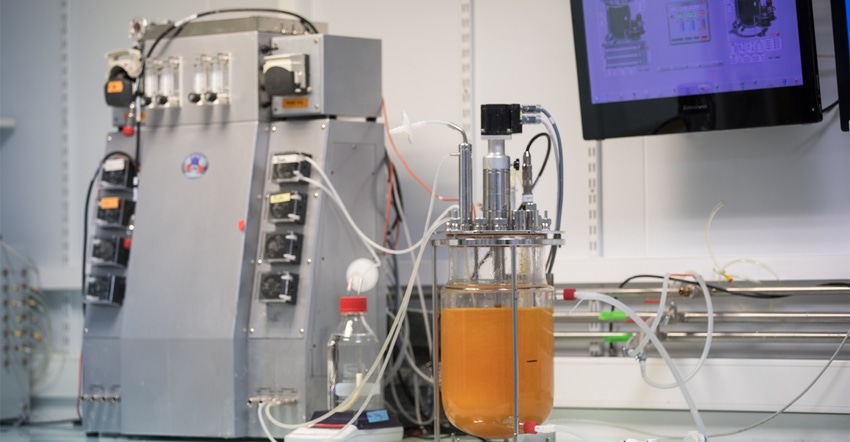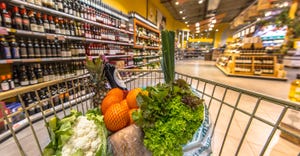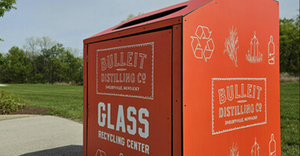Carbios Leverages Enzymes to Drive Circular PET Model
French “green” chemical company Carbios says it’s developed an enzymatic process enabling it to turn end-of-life polyethylene terephthalate (PET) into almost any application containing this resin. The team, which is running a demo with plans to launch a commercial plant in France in 2025, began its work with the packaging industry, showing brands and manufacturers how the technology can convert their waste into new products of virgin quality.

French “green” chemical company Carbios says it’s developed an enzymatic process enabling it to turn end-of-life polyethylene terephthalate (PET) into almost any application containing this resin.
The team, which is running a demo with plans to launch a commercial plant in France in 2025, began its work with the packaging industry, showing brands and manufacturers how the technology can convert their waste into new products of virgin quality. Now several big textiles brands have signed on with Carbios to test out the innovation, hoping to improve the circularity of their PET-containing apparel lines.
Moving into textiles rather than stopping at packaging made sense, figures Emmanuel Ladent, CEO of Carbios. We hear often of the deluge of spent plastic packaging, but packaging consumes about one-third of PET; two-thirds of it goes into fibers for textiles. All total, a whopping, estimated 100 million tons of PET are produced every year; about 10 percent is recycled.
“We can turn PET resin from a shampoo bottle into a t-shirt and turn resin from a t-shirt into a water bottle. And since we break down the polymer to the initial components of PET, we can recycle the same piece 20 or 30 times while maintaining the quality of virgin material. With mechanical technologies, the resin can be recycled about two or three times; then it’s over,” Ladent says, as it loses color and rigidity and has purity issues.
The demo is producing a limited quantity for Carbios partners Loyale, Nestlé Waters, PepsiCo, and Suntory Beverage & Food Europe. The new textiles consortium includes Patagonia, PUMA, Salomon, and On. Members all paid to join to test out the technology.
Ladent anticipates unveiling several upcycled textiles pieces in a few months—maybe a Patagonia shirt or On running shoes, among other products. The agreement includes supporting consortium members in market research as well as with consumer education on a very new concept around recycling; it will take some explaining to get the public’s buy in.
The biorecycling process whereby an enzyme selectively extracts PET, recovering it to recreate a virgin fiber, involves using low temperatures and low-energy consumption. This translates to reduced carbon dioxide (CO2) emissions. A preliminary life cycle analysis estimates the CO2 impact is less than half of virgin PET production, based both on less energy demand and avoidance of landfilling or burning the wasted plastic.
The commercial plant, now in development, will have a processing capacity of 50,000 tons a year and take in both packaging and textile materials, with the ability to achieve 97 percent output of waste—up from 90 percent output at the demo says Ladent. He estimates mechanical recycling gets 70 to 75 percent output.
But there’s more process finetuning to do, especially with textiles. Preparing packaging to go into the system proved fairly easy—not so with textiles. They are light weight and need to be compacted to flow in Carbios’ reactor. Removing the color has been a job too.
“So, we continue working to improve the process so it’s very efficient. We’ve done testing on specific PET fibers, and it works. Now we will focus on optimization of the process. Brands need to see the products are the same quality as virgin so they can show it to their markets before they roll it out,” Ladent says.
Carbios will work jointly with brands to show the technology lives up to its claims.
“Consumers are willing to do something good for the planet, but sometimes they are a bit confused about what currently exists, and they can be weary of new ideas because there is a lot of green washing. So, we will work to convince them this is the way to go for the future,” Ladent says.
Consortium partner Patagonia was already working toward circularity, for instance through its resale platform, and it recently launched a line of repaired garments.
But when it comes to making something new from postconsumer fabrics, material compatibilization with recycling streams has been difficult because its garments contain multiple materials.
“The use of multiple materials within one garment makes it technologically challenging to recycle and economically infeasible. Working with design teams on how we build product to make it more compatible with recycling infrastructure is a key focus of ours,” says Natalie Banakis, materials innovation engineer, Patagonia.
“There is a large need for textile recycling infrastructure to exist globally. Carbios’ process will hopefully increase the capacity for textiles to be recycled and reused by the chemicals industry,” she says.
Carbios chose consortium members carefully, looking for players who are committed to advancing a circular economy model and to working together in a competition-free environment.
“They are really interested in making this venture work,” Ladent says, adding once the commercial plant is running these first partners will have priority access to the monomers the tech company will work with.
“It will enable them to achieve their goals to get recycled content into their packaging. In 2025, EU regulations will require the brands incorporate 25 percent of recycled materials, so they’ll need to have both capacities from mechanical and biological recycling,” he says.
The 11-year-old company’s plan is to license the technology in 2023, with a further out ambition of launching factories in North America, European countries beyond France, and Asia.
About the Author(s)
You May Also Like




